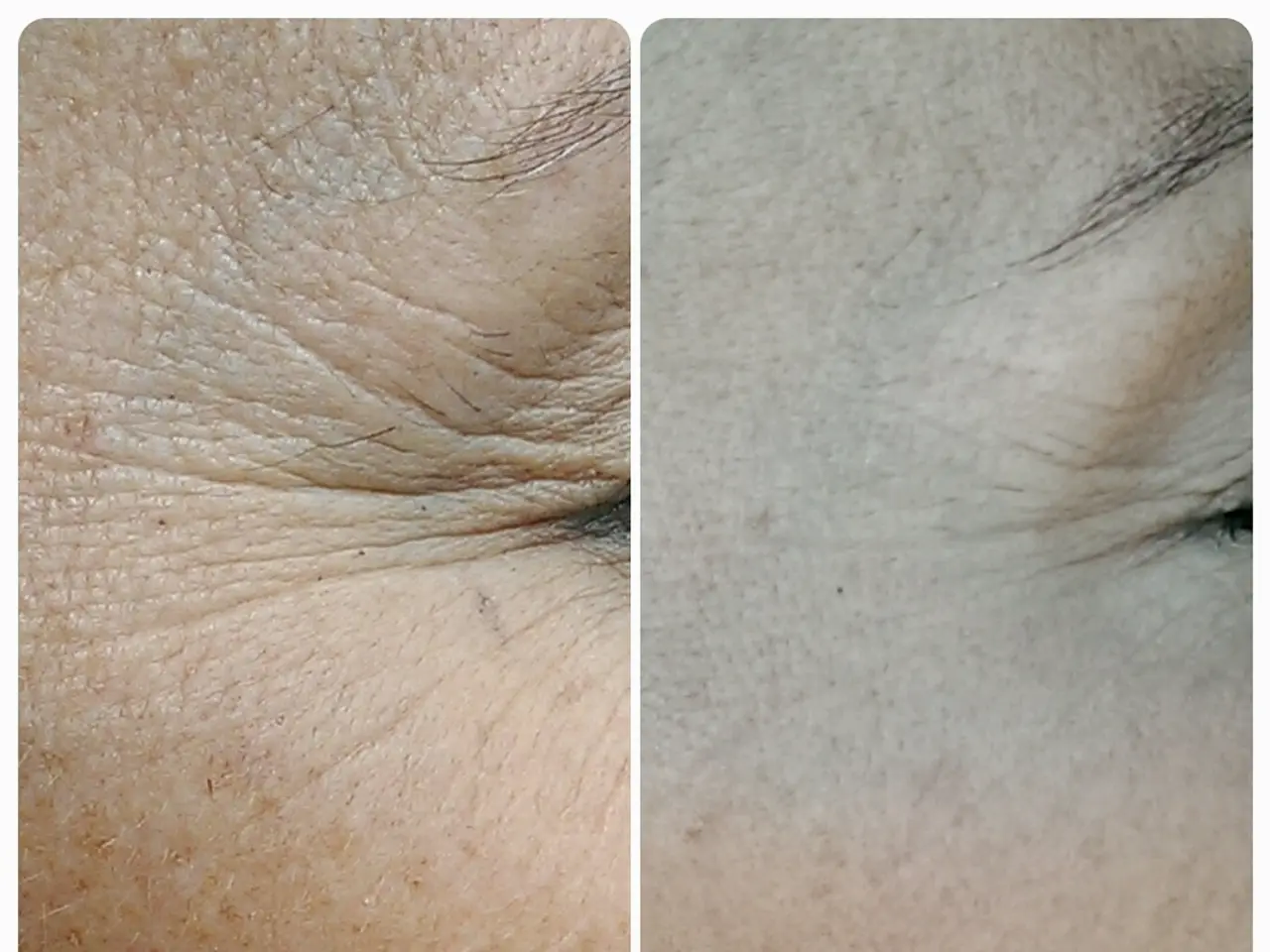Exploring Steroid Treatments for Eczema: Options beyond Topical Application and Oral Consumption
In the United States, more than 1 in 10 people grapple with eczema, a skin condition marked by itching, inflammation, and discomfort [1]. While various treatments are available, it's crucial to understand the potential side effects, particularly when it comes to long-term use of topical and oral steroids.
Topical steroids, available in forms such as gels, ointments, solutions, lotions, creams, foams, and even sprays, are commonly used to manage eczema. These steroids work by reducing inflammation in the skin, inhibiting immune cells, constricting blood vessels, and alleviating symptoms like itching and swelling [2]. However, prolonged use can lead to skin thinning (atrophy), stretch marks, changes in skin color (hypopigmentation or hyperpigmentation), increased hair growth, delayed wound healing, and the potential triggering of conditions like perioral dermatitis and steroid-induced acne [3][5].
Oral steroids, such as Prednisone, offer quick relief from eczema flare-ups by entering the body and reducing the body's inflammatory response. While effective, long-term use carries risks such as skin thinning and easy bruising, osteoporosis, high blood pressure, diabetes onset, immune suppression increasing infection risk, adrenal gland suppression, glaucoma, cataracts, muscle weakness, and slower growth in children [2][4].
A recent study revealed that 68-70% of participants with eczema saw an improvement in their symptoms after 12 weeks of topical steroid treatment [6]. However, it's essential to approach these treatments with caution and under the guidance of a healthcare professional.
Lifestyle factors, home remedies, and skin care are also crucial in managing eczema. People with eczema are advised to avoid heavily perfumed and fragranced soaps, lotions, and other skin care products. Some popular home remedies include aloe vera, apple cider vinegar, and coconut oil [1].
Environmental factors such as irritants, stressful situations, intense workouts, bacterial infections, changes in the weather, and food allergies can trigger eczema flare-ups. A doctor can help a person identify these triggers and prescribe non-steroid medications such as pimecrolimus, tacrolimus, risaborole, Dupixent, and immunosuppressant drugs like cyclosporin and methotrexate [1].
In conclusion, both topical and oral steroids, when used long-term, can lead to significant skin and systemic side effects, including hormonal disruptions and increased vulnerability to infections. Careful medical supervision is essential to balance eczema control with minimizing these risks [1][2][3]. By researching their options and consulting with a doctor, people with eczema can take steps toward better health.
- Treatmentseekers with eczema in the United States, equivalent to more than 1 in 10 people, encounter a skin condition that causes itching, inflammation, and discomfort.
- The potential side effects of various treatments, particularly long-term use of topical and oral steroids, should be considered, especially when managing eczema.
- In the case of eczema, topical steroids, available in various forms, work by reducing inflammation, but prolonged use may lead to skin thinning, stretch marks, changes in skin color, increased hair growth, delayed wound healing, and the potential triggering of other conditions.
- Oral steroids, like Prednisone, alleviate eczema symptoms but long-term use carries risks, including skin thinning, osteoporosis, high blood pressure, diabetes onset, immune suppression, adrenal gland suppression, glaucoma, cataracts, muscle weakness, and slower growth in children.
- A recent study found that more than 68-70% of participants with eczema experienced improvement in their symptoms after 12 weeks of topical steroid treatment, but caution and medical guidance are essential when approaching these treatments.
- Lifestyle factors, home remedies, and appropriate skin care, along with identifying environmental triggers and consulting with a healthcare professional, are vital in managing eczema effectively.
- By researching and consulting with a doctor, persons with eczema can take steps to balance eczema control with minimizing harmful side effects while ensuring better health in the field of health-and-wellness, medically recognized skin-care, and scientific solutions for medical-conditions.




